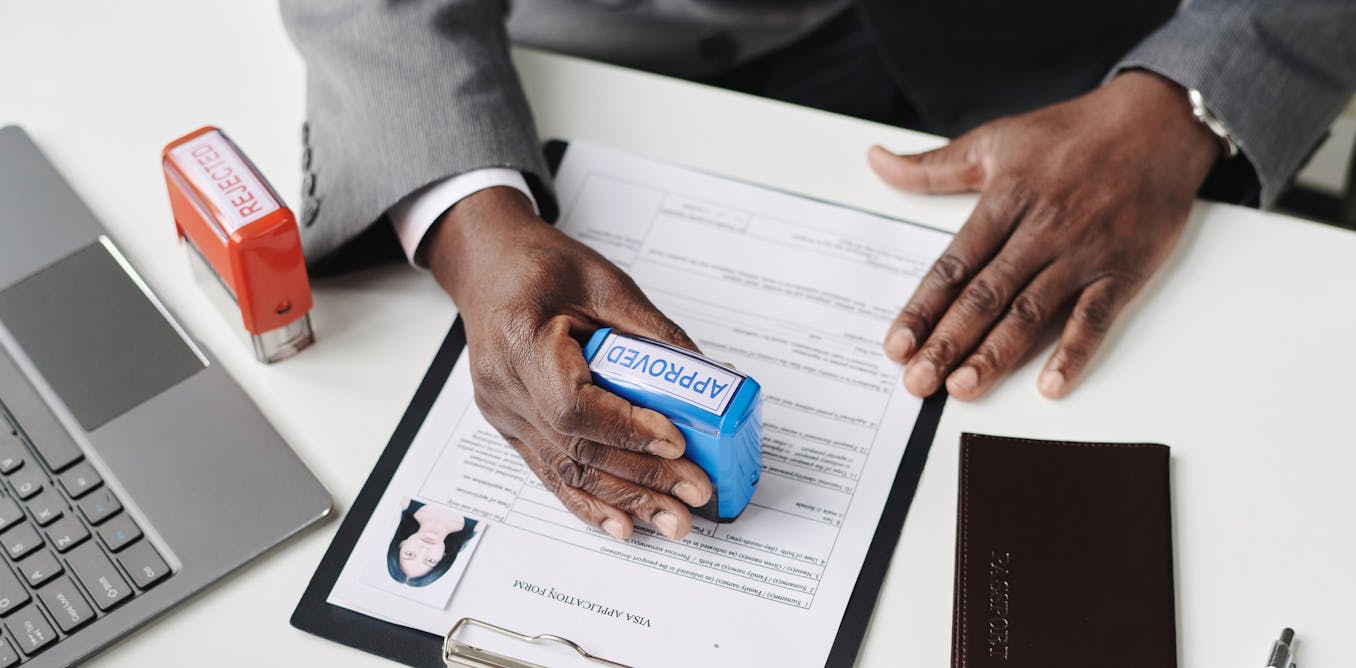how a new law could protect them

مجلة المذنب نت متابعات عالمية:
Kenya has published a draft bill outlining protections for whistleblowers. Long in the making, the Whistleblower Protection Bill 2024 could help to encourage disclosures in a country where 86% of the respondents to a 2023 survey feared what might happen to them if they reported corruption cases. Gedion Onyango, who researches public accountability reforms, anti-corruption and whistleblowing reforms, sets out what protections are needed and how to change public mindsets.
What is whistleblowing?
Whistleblowing is disclosing information about behaviour or misconduct that could harm the public interest – the overall welfare of a society.
Whistleblowing is primarily associated with disclosing corruption in state institutions. Because the private sector has become a partner in public service and national development processes, emerging laws like Kenya’s whistleblower protection bill and existing ones like Botswana’s Whistleblower Protection Act 2016 have been designed also to expose activities of companies and institutions that directly affect public affairs.
Several key conditions must be met for whistleblowing to be effective.
Read more:
Corruption in South Africa: would paying whistleblowers help?
Firstly, the society needs to broadly agree on what misconduct is. People should feel obliged to flag and address wrongdoing, and know what is expected when such information is disclosed. Essentially, the disclosure must be made in good faith.
Secondly, there must be an authority that is expected to and is willing to take action after receiving such information.
Thirdly, clear procedures or legal processes should be in place for receiving the information and determining the truth.
The person disclosing the information must find it easy to report, besides having sufficient evidence to support their claims. A thoroughly bureaucratic way of receiving information about wrongdoing is more likely to intimidate and discourage potential whistleblowers.
Fourthly, a system should be in place to reward individuals who disclose wrongdoing. This could involve recognising their contribution to society or providing financial incentives, often a percentage of money recovered in cases of corruption and asset recovery. Not all countries have this provision. But having such a reward is not always enough. This has been shown in Nigeria, where whistleblowing is declining despite the reward of 5% of recovered funds.
Finally, there needs to be trust in the authority and the process for it to work.
Why the focus on whistleblowers?
Whistleblowers are important sources of information about misconduct, dishonesty and unethical behaviour that would otherwise remain concealed from the public. They are critical in promoting human rights, fighting corruption and addressing governance misconduct and inequalities.
Many infamous scandals around the world have been brought to light by individuals who disclosed the wrongdoing. These include Kenya’s Anglo Leasing scandal.
Whistleblowing is essential to ethical public leadership. It is no accident that many developing countries are now enacting laws to encourage and protect whistleblowers. With new laws in Kenya, whistleblowers would no longer have to primarily defend themselves against non-disclosure clauses that outlaw disclosures of a potential wrongdoing. Whistleblowers have previously been targeted by public organisations for releasing information in an unprocedural manner.
You want to blow the whistle. What next?
Potential whistleblowers can use internal or external mechanisms to disclose wrongdoing. The choice of mechanism will depend on the whistleblower’s confidence or history with these mechanisms.
Studies have shown that internal whistleblowing is less desirable, and most whistleblowers prefer anonymous external whistleblowing channels that could prompt an investigation by an authority.
Read more:
South Africa’s corporate whistleblowers don’t get enough protection: what needs to change
What protections should whistleblowers expect?
Effective whistleblower protection mechanisms include protecting the identities of whistleblowers until the responsible authority has checked that there was wrongdoing.
Whistleblowers should be protected from retaliation or harm, including social victimisation, physical attacks and disciplinary actions.
The law should ensure that an insider whistleblower, such as an employee, is protected from being intimidated, disciplined or removed from their position. This should be for a long enough time (for example, at least five years), even if the case ultimately collapses, as often happens.
In other words, the person should be protected from any loss, including damages that would affect their mental health or their job. This is typical of legislation globally.
In today’s age of social media, the laws against defamation should be applied strictly to guard against online harassment.
What would a forward-looking whistleblower policy look like?
It’s important that whistleblower protection policies are understood and accepted by everyone. The process should start with extensive consultation. It should involve authorities such as religious groups, traditional leaders and government administrators at the lowest levels.
Including whistleblowing in the country’s school, college and professional curriculum would increase awareness and improve social acceptance.
It’s often the case that whistleblowers are seen as betrayers or snitches rather than as courageous defenders of public interest and ethical members of society. The reward system for whistleblowers should be included in prestigious national honours such as the Presidential Award.
نشكركم على قراءة المنشور عبر مجلة المذنب نت, المتخصصة في التداول والعملات الرقمية والمشفرة














